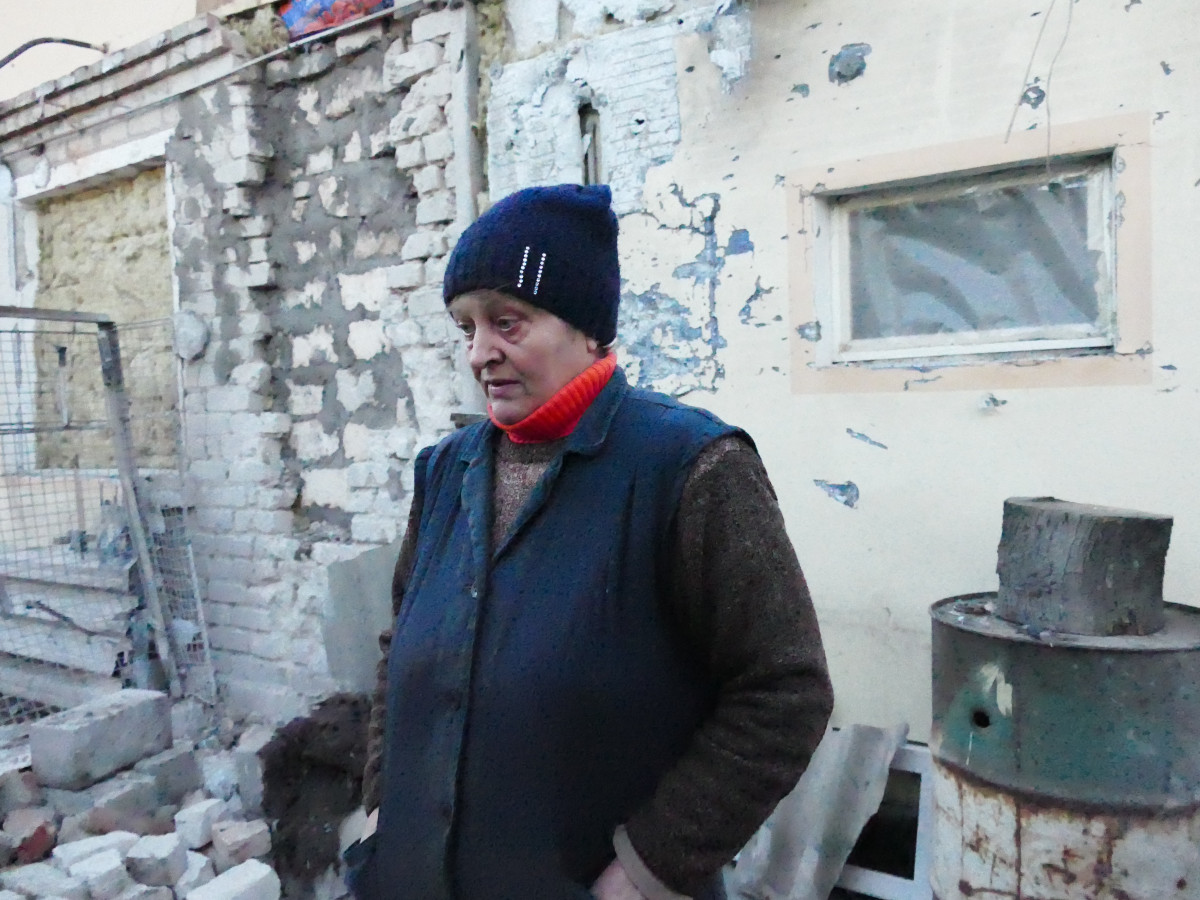For frontline families in eastern Ukraine, a nightmare of shelling returns
Published: Nov 23, 2021 Reading time: 2 minutes Share: Share an articleOn November 14 and 17, the residents of Nevelske — a frontline village in eastern Ukraine —experienced strong shelling, destroying three houses and demaging 17 more. People living in Nevelske once regularly heard the sounds of fighting, but shelling hadn’t affected their homes for several years. “It was like hell, everything was collapsing, and crashing and banging! Shells were falling really close to us. Bits of glass, everything was falling, and we were just lying there with my husband,” said Svitlana, who has lived with her family in Nevelske for more than 30 years.

Before the conflict, 250 residents lived in the village. Now, only 44 remain. Most residents still living in Nevelske are women of retirement age. Many people fled due to fighting in the area and proximity to the 427-kilometre contact line, which divides what used to be the most densely populated and industrially productive part of eastern Ukraine into government and non-government-controlled areas. Previously, the most recent shelling of the village was on June 29, 2016. Many local residents were injured as their homes were damaged. Even more damage can be seen outside the homes: fields around the village contain unmarked mines.
After the latest shelling, many people decided to leave. Those whose homes were destroyed had no other choice but to move out of the village. “I’ve been living here with my husband for 30 years; our children grew up here, and our grandchildren as well,” says Svitlana. “And now we need to leave. We’re going to [live with] our son. There is not much space in his house, but we’ll manage for some time before we’ll find a house for us.”
Salvaging Belongings from the Ruins
People spent days gathering their belongings from the ruins, moving their possessions and animals to safer places. Most of the residents kept livestock, as farming is a common source of income in the village. Now, it is difficult to transport animals— especially cows and pigs— as they need to find space and means of transport. “We’ve slaughtered one of the cows today, as we have no place to keep it,” Svitlana adds. “And I’ll take the other one with me to my son. There is a shed in my son’s yard, I’ll keep it there. We will move two piglets as well.”
Many of the villagers are leaving temporarily to stay with their relatives. Yet, there are some people who don’t want to leave the village despite the risk. Some don’t want to leave their homes where they have been living their entire lives, while others have no means or possibility of relocating.
A People in Need (PIN) team recently visited residents of Nevelske, assessing the immediate needs of the inhabitants. Psychological aid was provided to affected people by a qualified and experienced psychologist. PIN is currently planning a response designed to address acute needs of residents. This aid is possible with generous support from the European Union.



